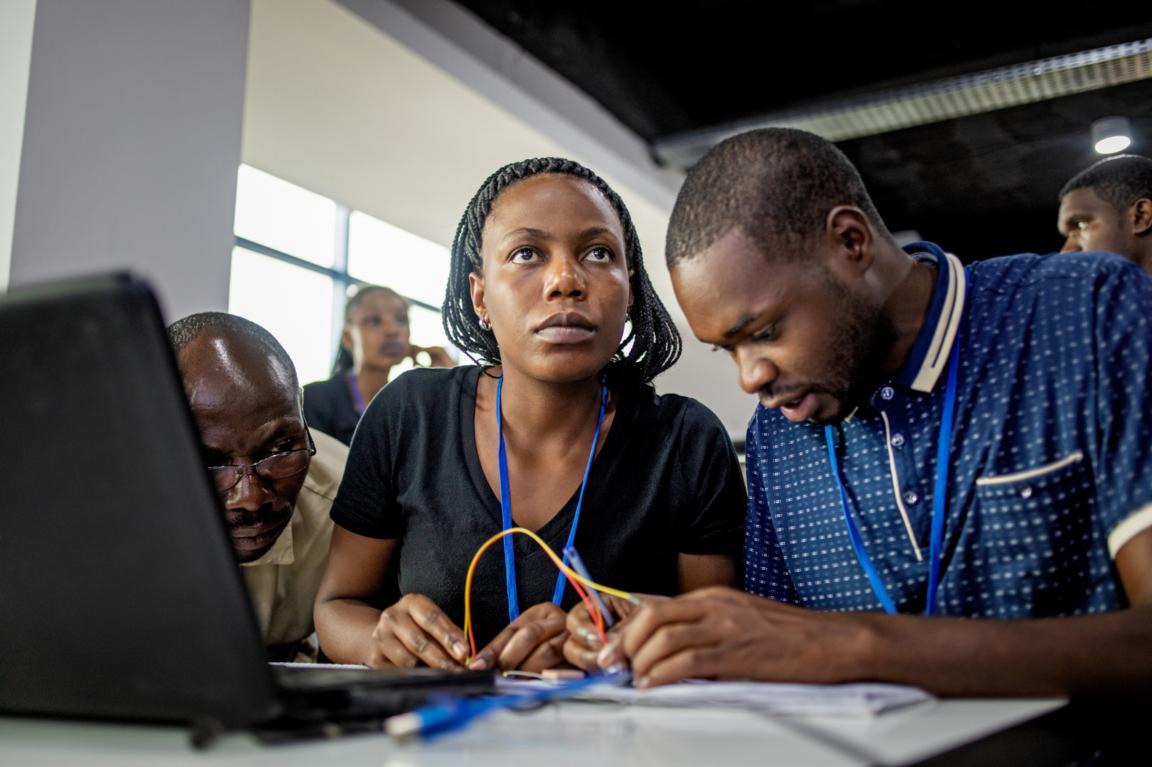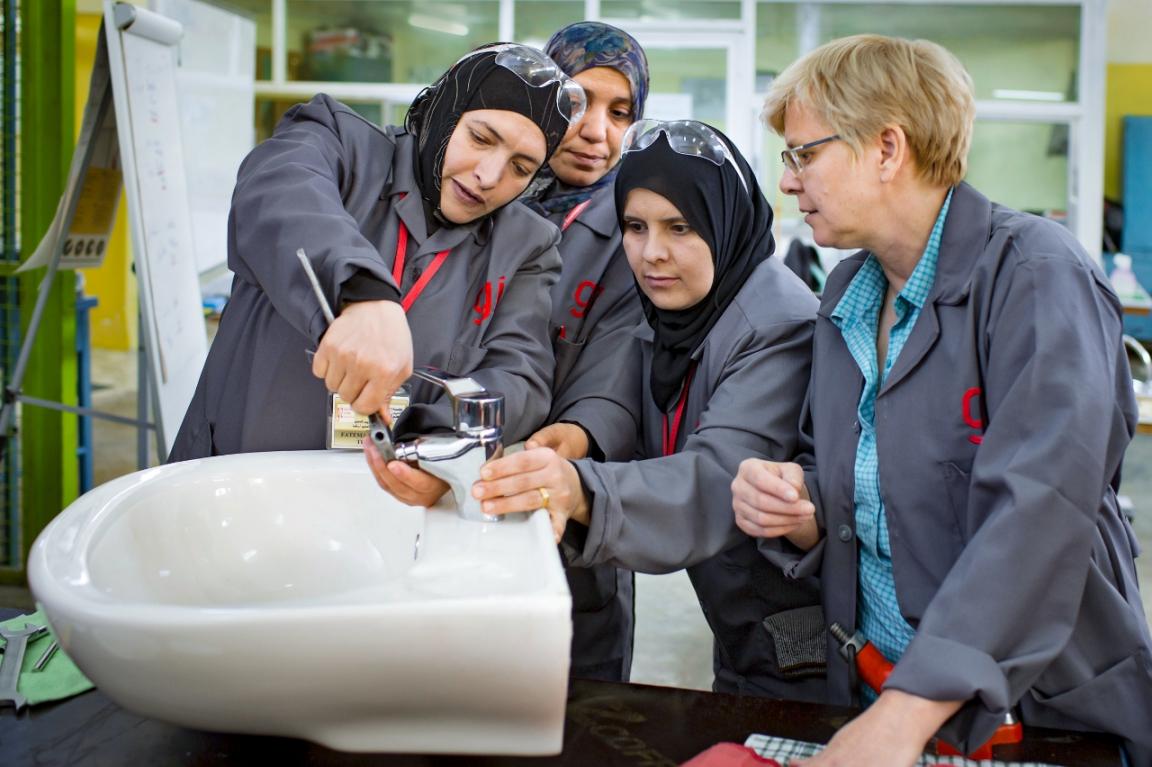In many of our partner countries, the technical vocational education and training system does not meet the expectations of young people or the requirements of the economy. Together with our partners, we are improving systems and framework conditions to create vocational education and training that meets the requirements of the labour market.

Technical and vocational education and training
Vocational education and training is essential for sustainable economic development. How is it possible to qualify teaching staff and improve cooperation between the state, the private sector and civil society so that training meets the requirements of the labour market?
Improving cooperation between government and the private sector
Stale curricula and a lack of cooperation with the private sector worsen the preparation of graduates. This leads to high youth unemployment and a shortage of skilled workers. GIZ promotes close cooperation with the private sector and the development of practical training programmes similar to the German dual model.

Further developing TVET institutions
In many of GIZ’s countries of assignment, technical and vocational training institutions are outdated, poorly networked and understaffed. We support the establishment, modernisation and management of TVET institutions and promote their cooperation with the private sector and civil society.
Training TVET staff
There is often a lack of framework conditions for high-quality training for teachers, trainers and public authority staff. We support partner countries in shaping the political framework, strengthen institutions for the qualification of teaching staff and develop tailor-made training programmes.
Recognising professional skills
GIZ supports the validation of skills – whether with an official qualification, gained through courses or learned in life. In this way, we facilitate access to the education system for disadvantaged groups, develop individual capacities and establish national professional standards. This in turn supports the (international) migration of skilled workers.
Supporting career guidance
Without clear orientation, young people often make decisions that raise unrealistic expectations and make it difficult to get started. This leads to high drop-out rates and an increased risk of unemployment and exploitation. We are committed to better career guidance, more information services and an easier transition into the labour market.

Digitalising TVET
Many of GIZ’s countries of assignment lack the infrastructure and legal framework to keep pace with digitalisation. We take a holistic approach:
Promoting equal opportunities
Worldwide, women are less likely to be in employment than men. We promote their opportunities through technical and vocational education and training. We pursue a three-pronged approach:
- Policy dialogue
- Empowerment
- Gender mainstreaming
Childcare accompanies the offer in many cases.

Gaining qualifications in crisis and conflict contexts
Conflicts and displacement make access to vocational training more difficult. We support our partner countries in expanding technical and vocational education and training in fragile contexts – for displaced persons, internally displaced persons and host communities.

